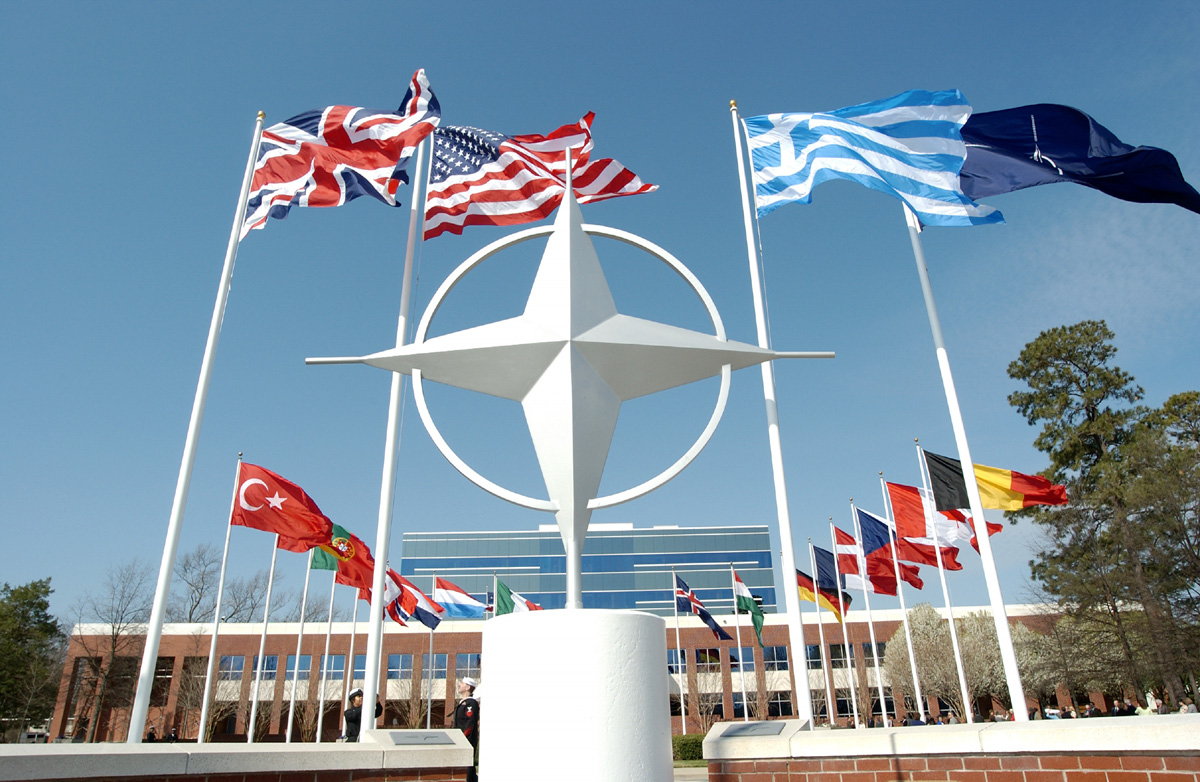Trump’s pledge to defend NATO countries only if they have ‘fulfilled obligations’ is raising concerns among lawmakers, allies
07/29/2016 / By usafeaturesmedia

(NationalSecurity.news) Article 5 of the NATO treaty states clearly that should any one member nation fall under attack, the other member nations would rally to its defense. That is literally the core of the treaty; mutual defense.
But GOP presidential nominee Donald Trump doesn’t think that very plain language is relevant – if he decides, as president, that the member state under assault hasn’t paid its fair share.
Earlier this week Trump said he would not automatically defend NATO allies under attack, saying instead that he would only send military aid to member states after reviewing their contributions to the alliance.
One day after formally being nominated as the Republican presidential nominee, Trump raised concerns that he may not fulfill NATO obligations that guarantee all 28 member states, including the U.S., defend one another militarily if even one state comes under attack.
As The New York Times reported:
For example, asked about Russia’s threatening activities that have unnerved the small Baltic States that are among the more recent entrants into NATO, Mr. Trump said that if Russia attacked them, he would decide whether to come to their aid only after reviewing whether those nations “have fulfilled their obligations to us.” He added, “If they fulfill their obligations to us, the answer is yes.”
Under the provisions of the NATO treaty – specifically, guidelines established in 2006 – member nations are required to spend 2 percent of their gross domestic product (GDP) on defense. In that respect, Trump is right that most members are not pulling their weight, according to The Washington Post.
In his interview with the Times, Trump provided details of a plan to force NATO allies to bear the costs of a guaranteed U.S. defense. He argued that many have taken advantage of a longstanding U.S. commitment to provide military support to smaller countries.
Trump also said he would move to sever treaties he found unfavorable to the U.S. if he beats prospective Democratic presidential nominee Hillary Clinton in November.
He also said that under the new conditions the rest of the world will adapt, emphasizing that he “would prefer to be able to continue” existing agreements, but only on the condition that allies contribute more of their own resources to their defense.
Trump stressed his nationalist foreign policy approach and desire for stability above all else, saying that “he would not pressure Turkey or other authoritarian allies about conducting purges of their political adversaries or cracking down on civil liberties,” the New York Times reported.
He said first U.S. has to “fix our own mess” before intervening around the world.
“I don’t think we have a right to lecture,” he said. “Look at what is happening in our country … How are we going to lecture when people are shooting policemen in cold blood?”
Some have taken umbrage with Trump’s remarks.
Rep. Adam Kinzinger, R-Ill., an Air Force veteran who served in Iraq and Afghanistan, says he believes Trump’s remarks stem from a lack of understanding about the nature and value of NATO.
“NATO is responsible for the fall of the Soviet Union; it invoked Article V after 9/11 after we were attacked. If we want to stop ‘go it alone’ foreign policy, we have to have allies, and what better allies [are there] than NATO?” Kinzinger told the Washington Free Beacon.
“We criticize President Obama for saying our allies don’t trust us and our enemies don’t fear us. But when you say things like ‘we’re going to get out of NATO,’ our allies aren’t going to trust us and our enemies aren’t going to fear us. It just happens to be a Republican [saying it], not a Democrat,” he said, adding that Trump was at least correct in asserting that most NATO allies are not paying their agreed upon share. The WFB reported that currently, only five of the 28 member nations are doing so.
European allies were also concerned.
“Solidarity among allies is a key value for NATO,” Jens Stoltenberg, NATO’s secretary general and a former prime minister of Norway, said in a statement to the Times. He added that he did not wish to “interfere” with the American election, but said: “Two world wars have shown that peace in Europe is also important for the security of the United States.”
More:
- NATO Sending ‘Combat-Ready’ Battalions To Perimeter With Russia, Along With A Message To Moscow
- Report: NATO Alliance ‘At Risk’ As Europe Slides And Russia Threatens
- How Helping Protect And Defend Our Local Police Officers Is A National Security Issue
NationalSecurity.news is a part of USA Features Media.
Tagged Under: Donald Trump, NATO





















